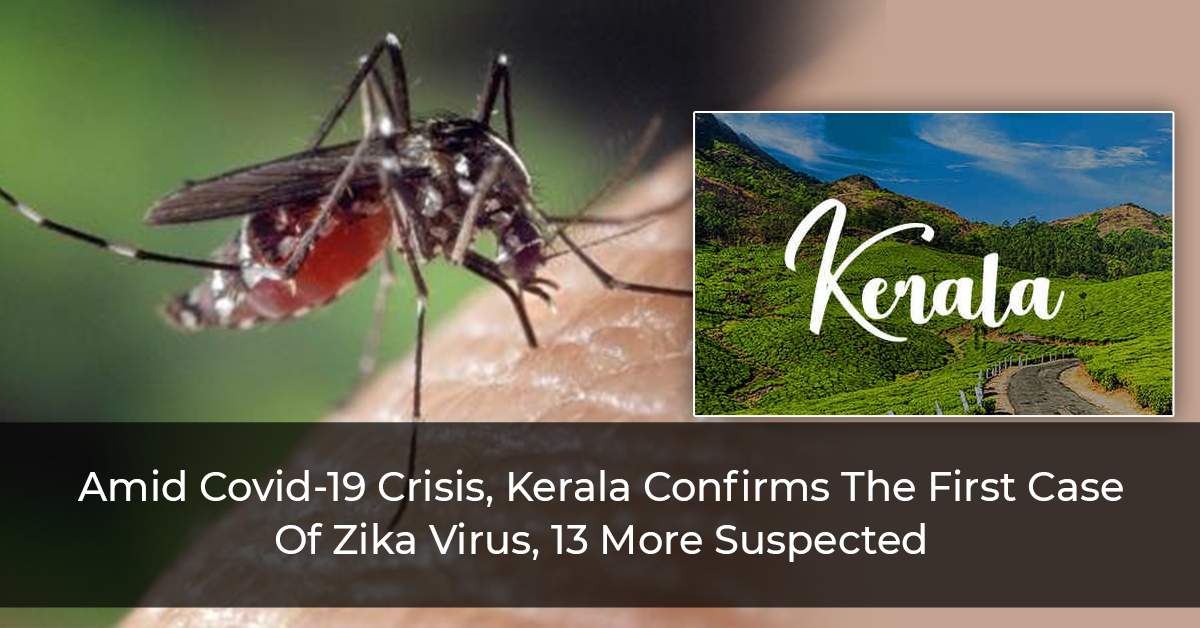Highlights:
- Kerala has recorded multiple cases of Zika virus, according to state Health Minister Veena George, who said that the illness has been detected in roughly 13 people.
- The Zika virus is a mosquito-borne flavivirus with no symptoms in most people.
- According to the World Health Organization, Zika virus symptoms include fever, rash, conjunctivitis, muscle and joint ache, malaise, and headache.
A verified case of Zika virus infection has been reported in Kerala, with 13 additional cases suspected. This comes after a spike of covid-19 cases in the state’s southern region.
A 24-year-old pregnant lady from Thiruvananthapuram district was diagnosed with Zika virus sickness on Thursday, according to state health minister Veena George. She is receiving treated at a private hospital and gave birth on July 7th. According to the physicians, her status is stable.
The minister informed reporters that another 13 people from Thiruvananthapuram had been identified as possible suspects, and that the government was waiting for confirmation from the National Institute of Virology (NIV) in Pune.
Thirteen health personnel, including doctors, are suspected of being Zika positive out of the 19 samples supplied from Thiruvananthapuram, according to the minister.
Zika virus sickness is caused by a virus that is mostly transmitted by Aedes mosquitoes that bite during the day.
Symptoms include fever, rash, conjunctivitis, muscle and joint ache, malaise, and headache, according to the World Health Organization (WHO). The symptoms usually persist 2–7 days. The majority of people who get infected with the Zika virus show no symptoms.
Also Read: This Indian State Is Allowing Entry To People, But Only Who Got Vaccinated
Infection with the Zika virus during pregnancy, on the other hand, can result in new-borns being born with microcephaly and other congenital deformities, a condition known as congenital Zika syndrome. According to the World Health Organization, Zika virus infection is linked to other pregnancy issues such as preterm delivery and miscarriage.
Infection with the Zika virus increases the risk of neurologic problems in both adults and children, including Guillain-Barré syndrome, neuropathy, and myelitis.
According to the World Health Organization, the first Zika virus outbreak was reported in 2007 on the island of Yap (Federated States of Micronesia). In 2013, there was a major outbreak in French Polynesia, as well as other Pacific countries and territories. Brazil reported a big outbreak of rash sickness in March 2015, which was quickly diagnosed as Zika virus infection and linked to Guillain-Barré syndrome in July 2015.
Brazil reported a connection between Zika virus infection and microcephaly in October 2015. Outbreaks and symptoms of transmission expanded rapidly throughout the Americas, Africa, and other regions of the world. To date, 86 nations and territories have reported evidence of Zika virus spread by mosquitos.
In 2017, India reported four confirmed Zika virus infections. In 2018, outbreaks were reported in Rajasthan and Madhya Pradesh. These, on the other hand, were not linked to neurological issues.
Kerala has been grappling with a resurgence of covid-19 cases. Kerala, Maharashtra, Karnataka, Tamil Nadu, and Andhra Pradesh were the top five states with the most cases as of Friday, according to data from the Union health ministry.


